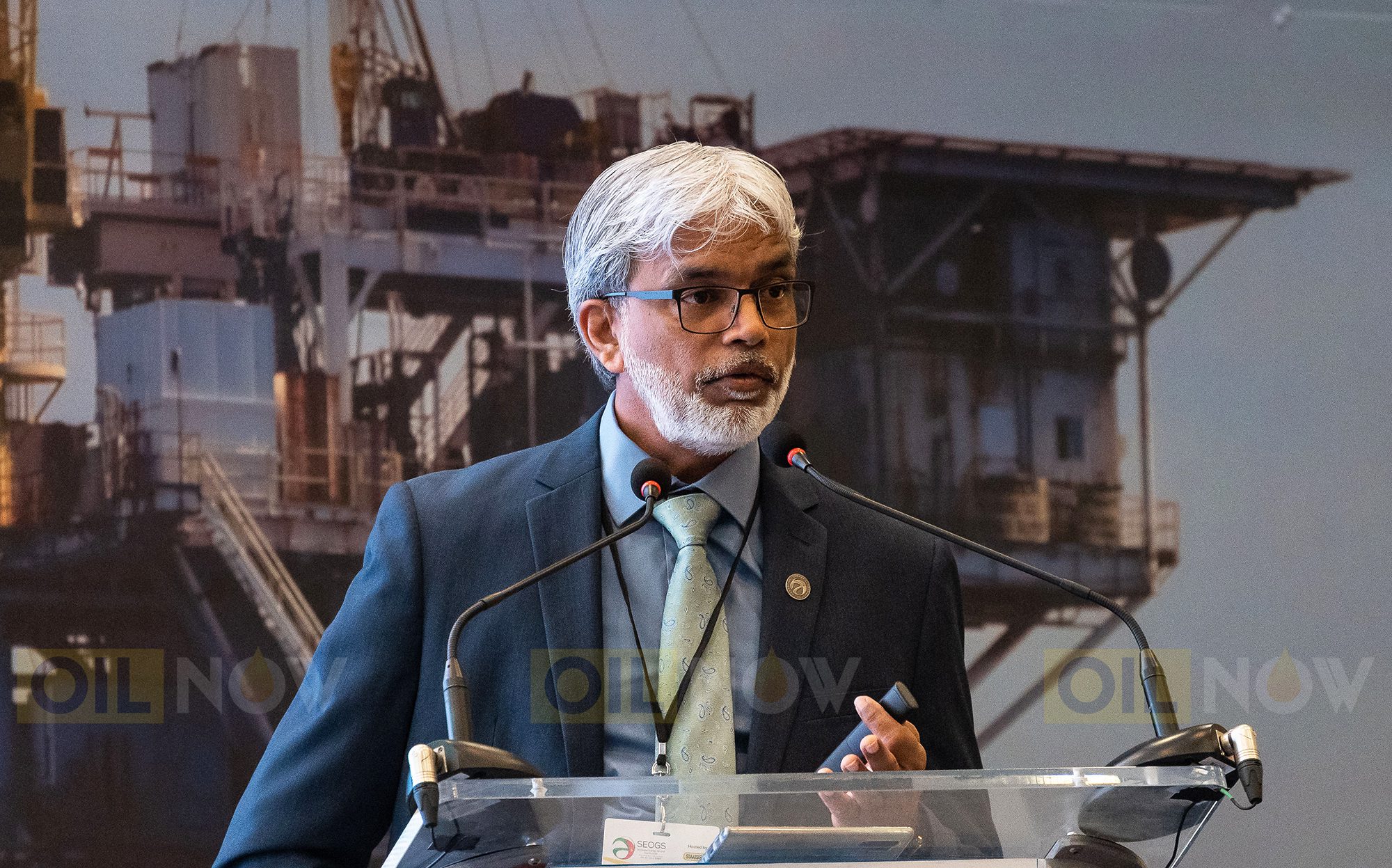Paramaribo, Suriname – As plans continue to move forward for Suriname’s first offshore oil production project, Managing Director of state oil company Staatsolie, Annand Jagesar, believes the country would do well with a local content policy instead of a law.
“I would not like to go for a law…it will maybe give some advantage to local companies [but] that will make them even less competitive…so we would like to have a policy,” he told OilNOW in an exclusive interview on Thursday at Staatsolie’s headquarters in Suriname’s capital, Paramaribo.
TotalEnergies, operator of Block 58, is expected to make its final investment decision soon for Suriname’s first offshore development.
The country currently has no local content law nor policy in place. These are often seen as key elements to help a country retain the most value from its natural resources for its people. What Suriname has currently is a local content clause in its Production Sharing Contracts, Jagesar explained.
“It basically says that if something can be bought at a competitive price and quality in Suriname, it should be bought from Suriname,” he added.
Work on developing a policy has started. In the meantime, Staatsolie, as regulator of Suriname’s oil sector, is moving forward with several initiatives to ensure that the country benefits from the offshore development.
With the help of Chevron and ExxonMobil, Staatsolie developed the Blue Wave Supplier Development Program in July 2023 with the aim of providing local companies with the necessary resources and training to meet international standards and compete effectively in the market.
Suriname’s oil and gas industry: Progress in 2023 | OilNOW
“The first cohort has 24 companies and the second has 30-something companies… They learn how to set up healthy, safety and environment measures, human resource policies, anti-bribery systems etc.,” he explained.
Suriname’s Technical and Vocational Education and Training developed an oil and gas programme which will see 30 students being delivered to the market.
“Hopefully, when the production platform is there, we can use these people,” Jagesar told OilNOW.
Push local content, don’t forget about Suriname’s other sectors – Business Development CEO | OilNOW
While Suriname may opt for a local content policy, its neighbor to the west – Guyana – has a local content law in place. The overarching function of the legislation is to ensure that the rights of Guyanese are protected and to ensure they get first preference for opportunities in the oil and gas sector. And it has achieved this, thus far and has even pulled more investors to the country, as observed by one economist, Richard Rambarran.
The law features 40 categories of work that must see Guyanese participation to varying degrees. Foreign investors wanting to operate within those areas are required to partner with local companies with Guyanese having 51% or more ownership.



